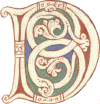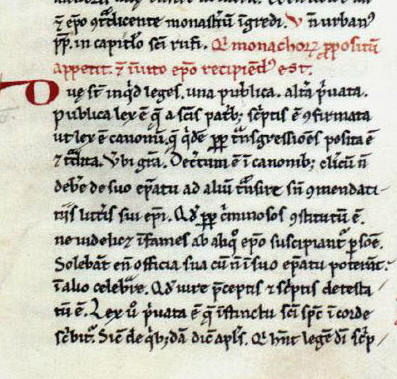K÷ln, Erzbisch÷fliche Di÷zesan- und Dombibliothek 127, fol. 194v
 ue sunt, inquit, leges:
una publica, altera privata. Publica lex est
ue sunt, inquit, leges:
una publica, altera privata. Publica lex est
| There are, he said, two laws, one public, the other private. The public law is that which is established in writing by the holy fathers, as is canon law, which, indeed, is issued because of transgressors [cf. Galatians 3:19]. For example, it is decreed in the canons that a cleric ought not to cross from his own diocese to another without a letter of introduction from his bishop, which was constituted because of criminals, namely so that infamous persons would not be received by any bishop. For they were accustomed to celebrate their liturgies in another diocese when they could not do so in their own, which with justice is excoriated by commands and writings. |
